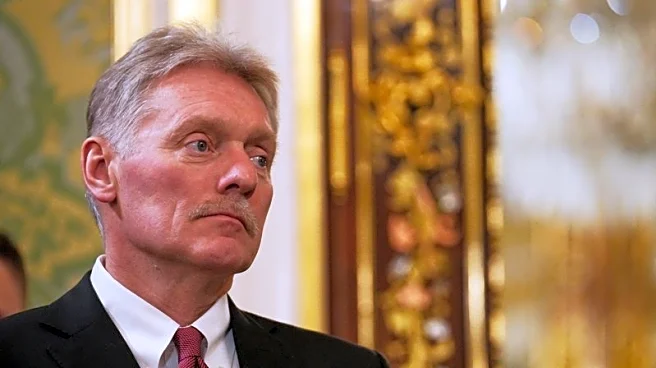What's Happening?
At the COP30 United Nations climate talks in Belem, Brazil, government ministers have taken over negotiations from lower-level delegates. This shift marks the beginning of the conference's second and final
week, where ministers are expected to make critical political decisions. The Brazilian presidency has issued a five-page summary outlining key issues, including the need for nations to enhance their emissions reduction plans and address trade disputes related to climate change. The document also emphasizes the necessity for financial aid to poorer nations, proposing new 'road maps' to achieve these goals. Small island nations, facing existential threats from rising sea levels, have called for more robust emissions-cutting plans, highlighting the inadequacy of current submissions from 116 nations. The talks may also address the phase-out of fossil fuels, a topic previously agreed upon but lacking progress.
Why It's Important?
The involvement of high-ranking government ministers at COP30 is crucial for advancing climate negotiations, as they possess the authority to make significant political decisions. The discussions are pivotal for small island nations and other vulnerable regions, which are disproportionately affected by climate change. The proposed road maps and financial aid packages are essential for bridging the gap between current emissions reduction plans and the goals set in the 2015 Paris Agreement. The potential phase-out of fossil fuels could lead to substantial shifts in global energy policies, impacting industries reliant on coal, oil, and natural gas. These developments are critical for achieving the target of limiting global warming to 1.5 degrees Celsius above pre-industrial levels.
What's Next?
As the COP30 talks progress, negotiators will need to finalize agreements on emissions reduction plans and financial aid packages. The discussions may lead to the creation of detailed road maps for phasing out fossil fuels, which could influence future climate policies globally. Stakeholders, including advocacy groups and nations vulnerable to climate change, will likely continue to push for ambitious outcomes. The success of these negotiations could set a precedent for future climate summits, emphasizing the importance of credible commitments and international cooperation in addressing climate change.
Beyond the Headlines
The COP30 negotiations highlight the ethical responsibility of wealthier nations to support poorer countries in their climate adaptation efforts. The discussions also underscore the cultural significance of Indigenous land rights and territories in conservation efforts. Long-term shifts in energy policies could lead to increased investment in renewable energy sources, fostering innovation and economic growth in sustainable industries. The talks may also influence public perception and awareness of climate change, encouraging individual and collective action to mitigate its impacts.










